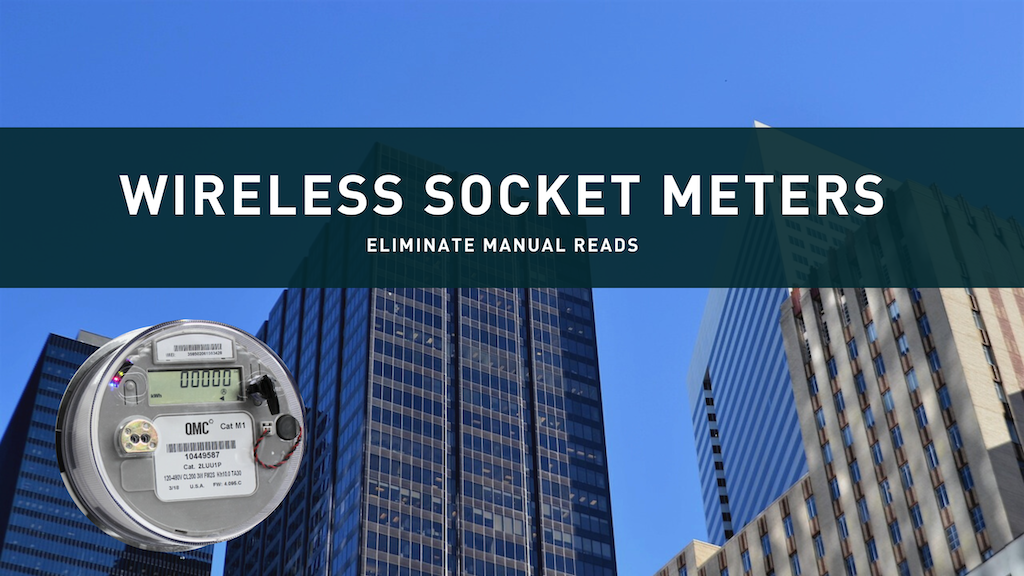
It’s a common saying that knowledge is power, but knowledge about power is extremely valuable for electric utilities on commercial properties.
Over the past decade, submetering has exploded in popularity thanks to recent advances in technology, combined with a push towards green energy. Submeters provide a deep understanding of how, where, and when power is used across a property’s network.
In a submetering system, the utility meter will function as the main or master meter for a property by measuring the total electricity used. For multi-tenant building owners and facility managers, this can be done with socket meters. Typically, there has been a standard type of socket meter used, but as time evolves, so do the options available for these meters. However, to distinguish the varying types, it’s important to have a base understanding of what these meters are.
What are socket meters?
A socket meter is an electrical submeter that connects to a socket base within a building. They can be installed outdoors or within electrical rooms. These meters are used to monitor the amount of energy being dispersed throughout the building on which they’re installed, making them critical components for residential, recreational and commercial electric utilities. They can be found attached to the exterior of buildings to measure the amount of used power for accurate billing information.
Types of meters
Standard socket meters
Standard socket meters are traditionally glass analogue meters. Glass socket meters are most likely installed poorly and aren’t tracking metering data accurately. They also have little to no automation capabilities, with no Measurement Canada sealing done for ensure they are approved for revenue metering. While these are the traditional meters that have been used over the years, they are becoming an outdated option as reading its usage is a time consuming and error prone method that can have expensive implications during tenant billing. In many cases, they can also be well past their certification period to allow for legal billing.
Wireless socket meters
Wireless socket meters are different from traditional analogue socket meters in that they can utilize a wireless network, similar to a cell phone’s cellular connection, instead of requiring manual readings. These meters transmit their metering data individually to a meter data management system that tracks and monitors energy consumption for each tenant for individual and cumulative billing purposes. Property managers can then use this information to help manage accounts, conserve energy, and recover utility costs.
Wireless socket metering with QMC
Seamlessly installing wireless electricity socket meters allows for a more efficient process in understanding a building’s utility usage. When installing socket meters, ensure they are approved for revenue metering to protect yourself from liability. Building owners can assess each meter’s data collectively with reporting software like QMC’s MeterConnex, for energy management or billing purposes. Due to their wireless nature, it’s a much simpler process to ensure their compliance with local regulatory laws and requirements for legal tenant billing.
Socket meters are rooted in portraying what’s happening at a granular level within a building’s electricity consumption. The reliable data they provide offers a tremendous advantage when finding solutions for existing energy problems. Choosing the best socket meters can help building owners save time through wirelessly collecting meter data and save money by protecting them for liability issues. The better owners understand, the better their chances of unlocking higher levels of efficiency and financial savings for optimized operations.
Read more: